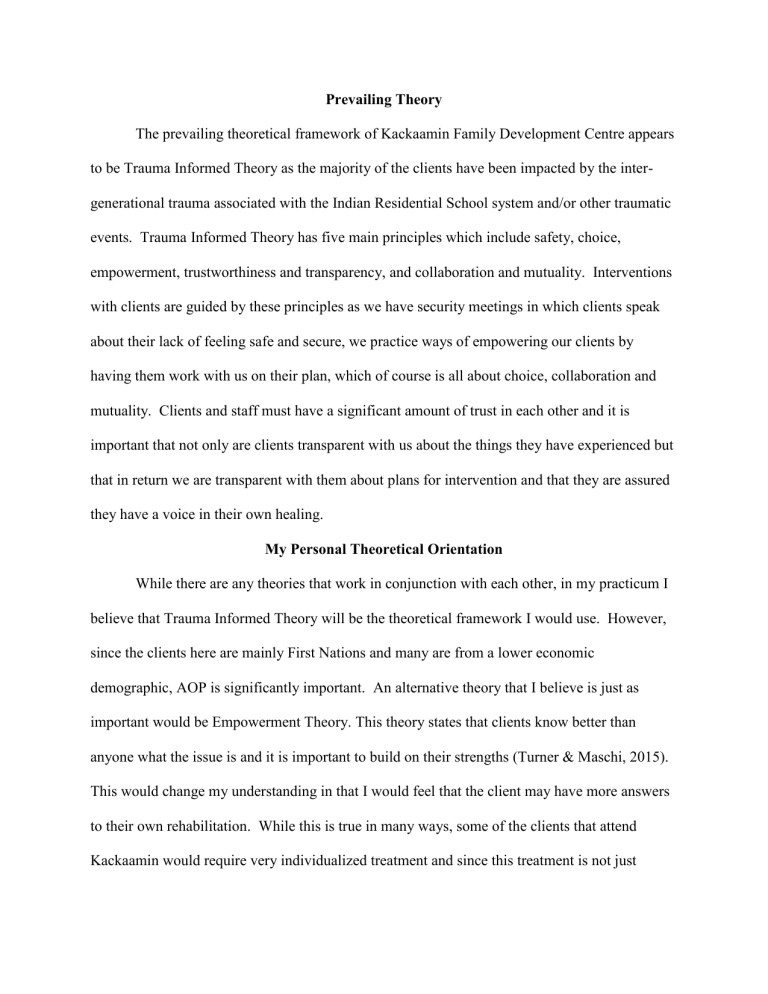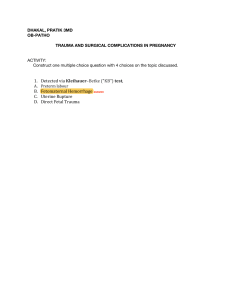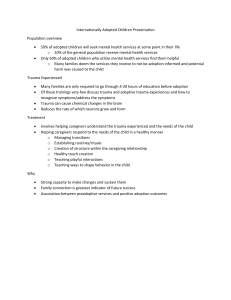
Prevailing Theory The prevailing theoretical framework of Kackaamin Family Development Centre appears to be Trauma Informed Theory as the majority of the clients have been impacted by the intergenerational trauma associated with the Indian Residential School system and/or other traumatic events. Trauma Informed Theory has five main principles which include safety, choice, empowerment, trustworthiness and transparency, and collaboration and mutuality. Interventions with clients are guided by these principles as we have security meetings in which clients speak about their lack of feeling safe and secure, we practice ways of empowering our clients by having them work with us on their plan, which of course is all about choice, collaboration and mutuality. Clients and staff must have a significant amount of trust in each other and it is important that not only are clients transparent with us about the things they have experienced but that in return we are transparent with them about plans for intervention and that they are assured they have a voice in their own healing. My Personal Theoretical Orientation While there are any theories that work in conjunction with each other, in my practicum I believe that Trauma Informed Theory will be the theoretical framework I would use. However, since the clients here are mainly First Nations and many are from a lower economic demographic, AOP is significantly important. An alternative theory that I believe is just as important would be Empowerment Theory. This theory states that clients know better than anyone what the issue is and it is important to build on their strengths (Turner & Maschi, 2015). This would change my understanding in that I would feel that the client may have more answers to their own rehabilitation. While this is true in many ways, some of the clients that attend Kackaamin would require very individualized treatment and since this treatment is not just individual but rather for the entire family, I feel that the children that attend really require the Trauma Informed Approach. References Turner, S. G., & Maschi, T. M. (2015). Feminist and empowerment theory and social work practice. Journal of Social Work Practice, 29(2), 151-162.




